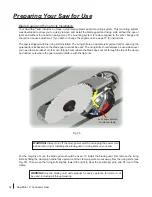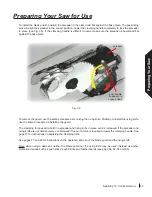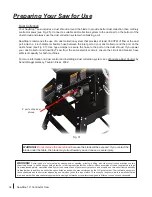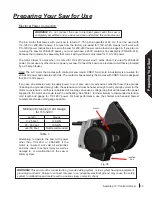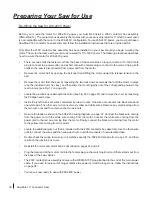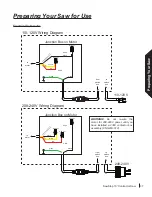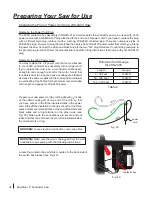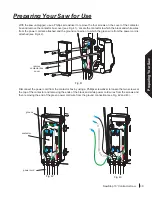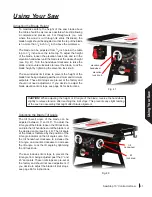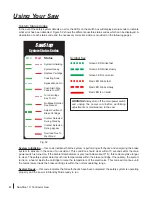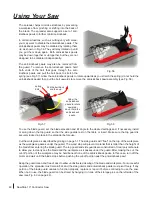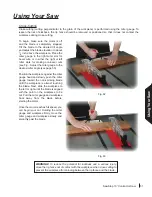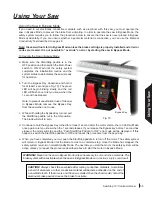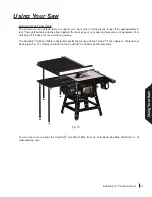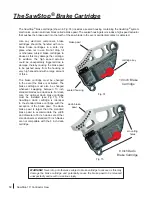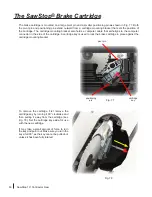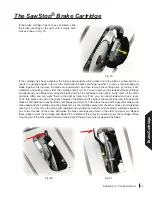
46 SawStop 10” Contractor Saw
Using Your Saw
Contact Detected During Bypass
— this code indicates that contact was detected while the saw was running
in Bypass Mode. As described above, the brake will not activate while in Bypass Mode but the safety system
will continue to monitor for contact. If this code is displayed, then it indicates that the brake would have
activated if the system had not been in Bypass Mode. This error will automatically clear once the blade has
finished coasting down.
Material Conductivity Test
The “Contact Detected During Bypass” code also allows you to test a particular material to see if it is too
conductive to cut during normal operation. For example, if you have a new material you need to cut and are not
sure if it is conductive, you can make several cuts in Bypass Mode. If the “Contact Detected During Bypass”
error code is displayed, it means the material is too conductive and must be cut in Bypass Mode to prevent the
brake from activating. If the error code is not displayed after several trial runs, then it is likely that the material is
not conductive and you can make future cuts in normal mode. (See page 55 for instructions on how to operate
the saw in Bypass Mode.)
Overload Due to Wet Wood
— this code indicates that the wood being cut is too wet or too green. You can
cut most wet or green wood with the safety system active. However, extremely wet or green wood can interfere
with the safety system’s ability to detect contact. Accordingly, the system monitors for wet and green wood and,
if the wood is too wet or too green, the system will shut off the motor and display this error code. To clear this
error, turn the Start/Stop paddle to
OFF
and turn the main power switch to
OFF
and then back to
ON
.
In addition, wet pressure-treated wood may cause an overload error or even cause the brake to activate. The
chemicals used to pressure treat wood often contain large amounts of copper, which is conductive. When
pressure-treated wood is wet, the combination of copper and water substantially increase the conductivity of
the wood. Therefore, allow wet pressure-treated wood to fully dry before cutting. Typically, the wood will be
sufficiently dry if left unstacked in a dry location for 24 hours. If you must cut wet pressure-treated wood, you
can use the Material Conductivity Test described above to test whether the wood is too wet. If the test indicated
the wood is too wet to cut with the safety system active, you must either allow the wood to dry or make the
remaining cuts in Bypass Mode.
Note
: if the saw shuts down due to an overload error, do not attempt to finish cutting that piece of wood until
it has dried. The overload error indicates that the system was close to firing the brake before it went into
overload. Therefore, repeatedly attempting to cut a wet piece of wood could result in an unnecessary activation
of the brake.

